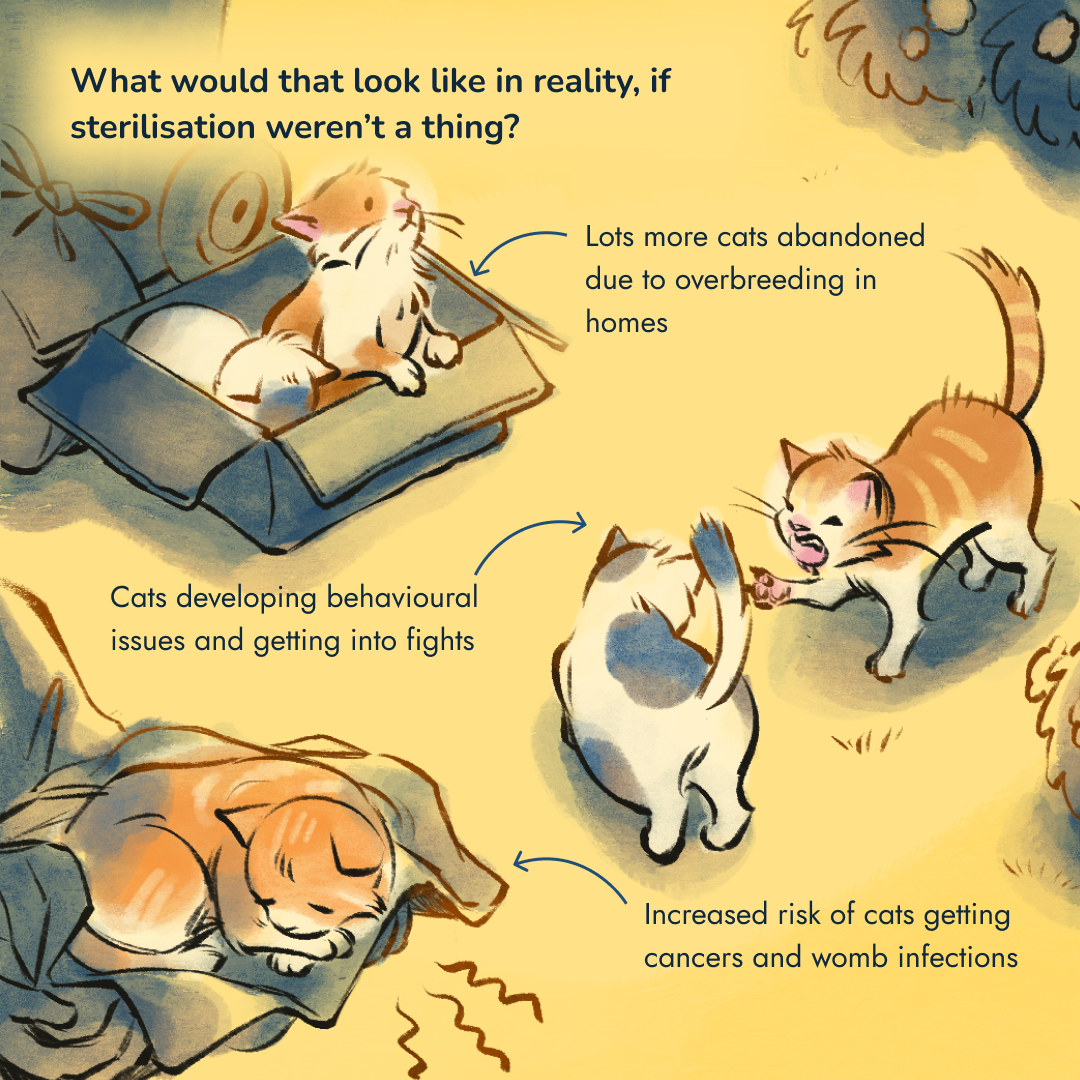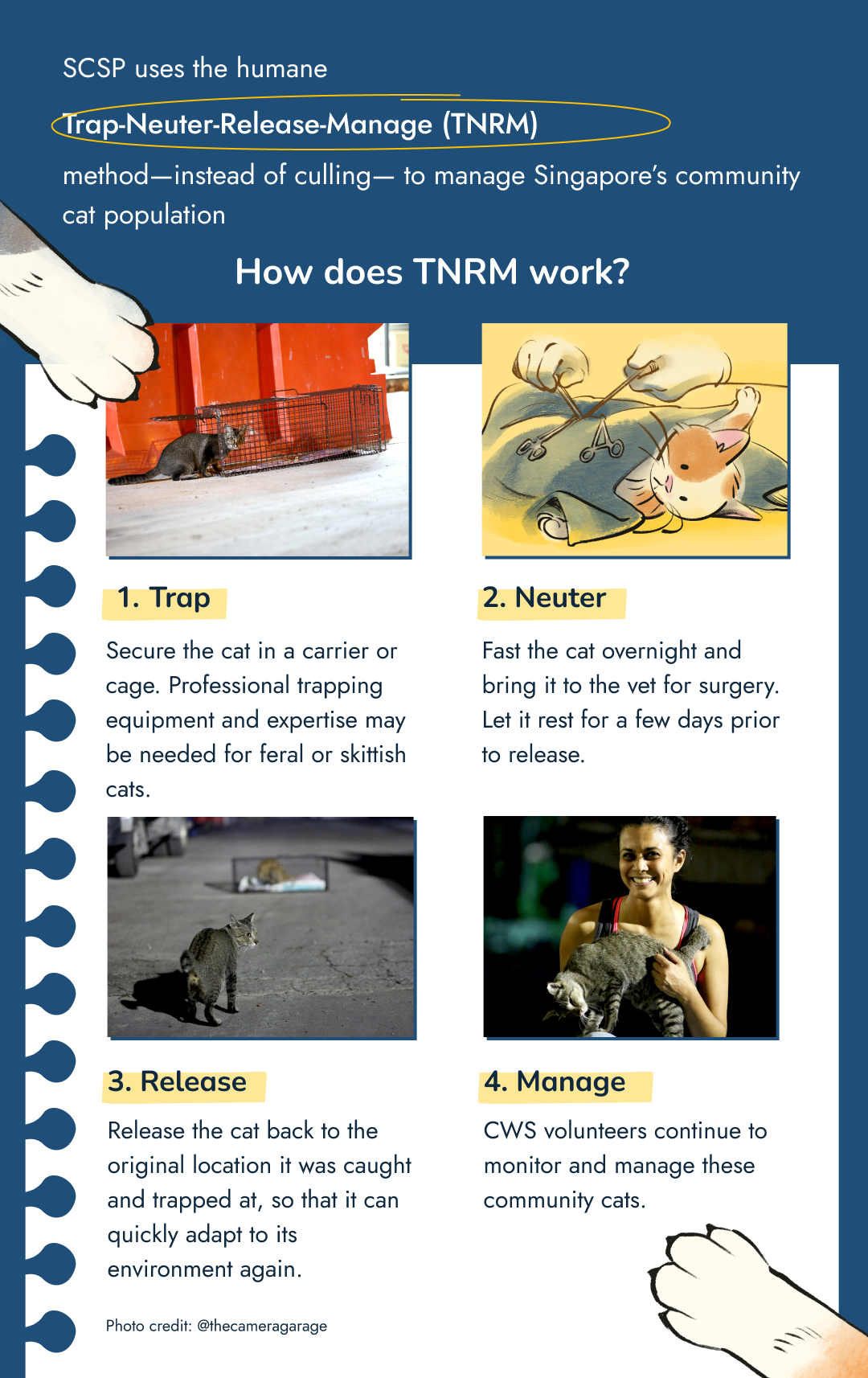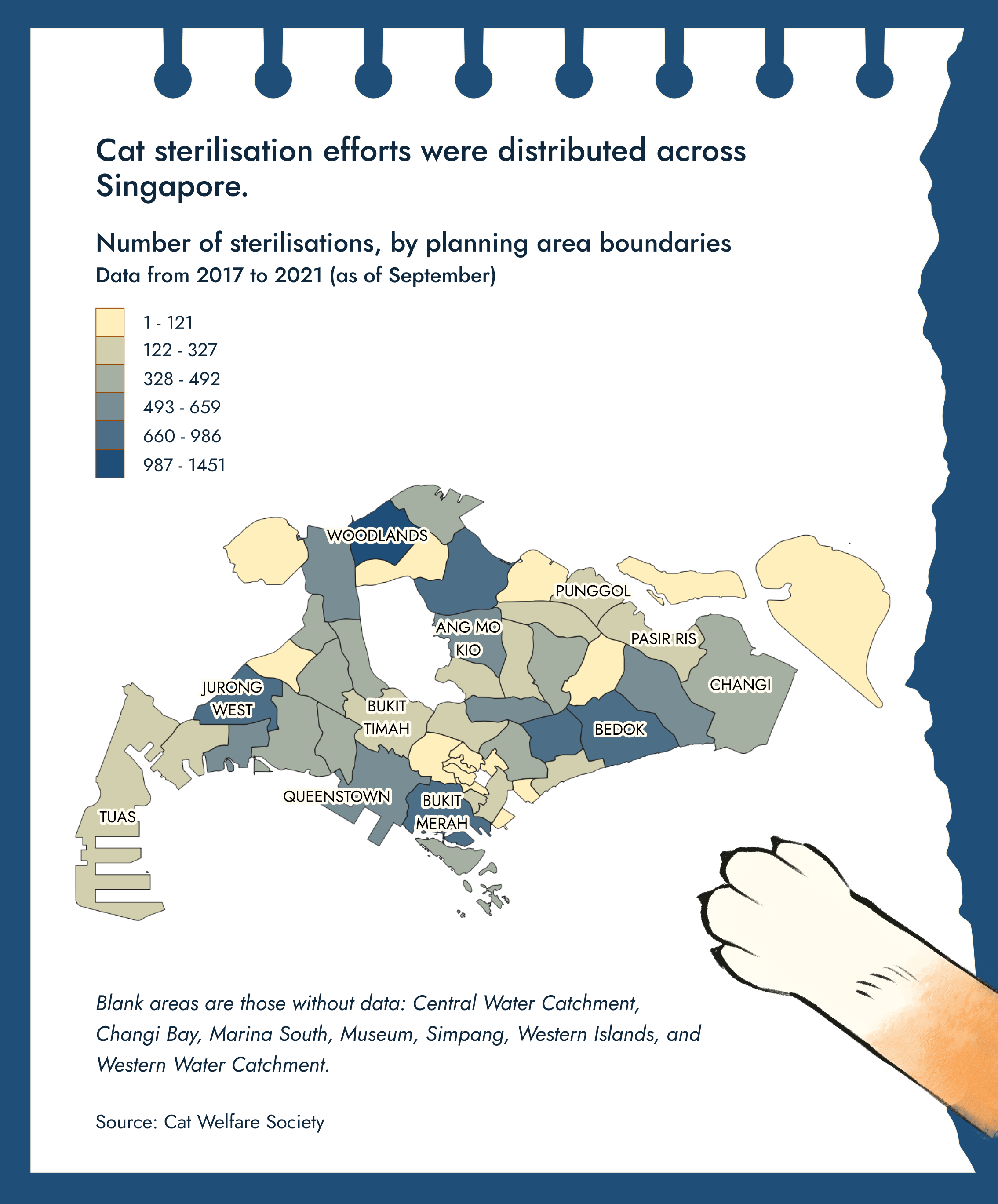Furball fantasy
Making Singapore a safe space for stray cats
To make our country a safe place for stray cats to live in, mitigation efforts such as the Stray Cat Sterilisation Programme by the Cat Welfare Society are necessary and a more humane long-term solution.
For us cat lovers, we may dream of making Singapore a haven for cats.
But if no proper mitigation measures are put in place, having a place full of cats wouldn’t be ideal for the animals themselves.
Think about it: if there are too many cats around, they are likely to develop negative behaviours and get into fights, especially among cats which are more territorial.
They would also breed relentlessly. Stray cats would struggle to take care of their kittens, and even cats with owners might be abandoned due to over-breeding in homes. Abandoned cats are likely to develop diseases if they continue to breed without space to properly rest in, resulting in more of them getting womb infections and even cancers.

This is why non-profit organisations such as the Cat Welfare Society are important—they implement essential mitigation strategies to ensure that the cats in Singapore can live healthily and happily.
One of their most important initiatives is the Stray Cat Sterilisation Programme (SCSP). With this programme, the number of cats in Singapore can be properly managed, and the problems that may arise with having too many kittens around can be avoided.
Under this programme, the members of the Cat Welfare Society employ the Trap-Neuter-Release method. Compared to culling, this method is more humane and effective in the long run.

Through this programme, the Cat Welfare Society has managed to sterilise around 3,900 cats on average per year.
When we sort these numbers into local neighbourhoods, we can see how the organisation has spread their efforts across the country, ensuring that cat populations in most neighbourhoods are sterilised.

Over the years, the Cat Welfare Society has made tremendous progress with the programme. Their continuous efforts, including initiatives outside of the SCSP, have led to a much lower culling rate of stray cats in Singapore over time.
However, they can become more efficient and effective with help from the general public—so how can you help them?
Donate to their fundraiser.
Support Cat Welfare Society’s other initiatives—for instance, the Pet Cat Sterilisation Programme covers sterilisation costs for families that require financial help.
Share Kontinentalist’s collaborative story with Cat Welfare Society and bring awareness to the SCSP!
Let’s do our part to keep Singapore a safe haven for cats!
This story was first published on Kontinentalist’s Instagram on December 24, 2021. The original version was written by Isabella Chua and illustrated by Griselda Gabriele, and was created in collaboration with the Cat Welfare Society.
Data for this story were mainly obtained from the Cat Welfare Society and cleaned, analysed, and visualised by Kontinentalist. Other information was obtained from secondary online sources, with all of them listed below the data visualisations and in the references list.
Dataset for graphs were obtained from the Cat Welfare Society
Cat Welfare Society. “Sterilisation,” 2017. https://www.catwelfare.org/sterilisation-overview/.
Chua, Isabella. “As a Cat Lover, I’d like Nothing More than If Singapore Becomes a Cat Haven.” Instagram, December 24, 2021. https://www.instagram.com/p/CX21MnkBjMw/?hl=en&img_index=1.
Goh, Ronald. “Why Are Cats the Most Abandoned Pets in Singapore? Lack of Accountability and Sterilisation, Say Welfare Groups.” Yahoo News, February 5, 2024. https://sg.news.yahoo.com/why-are-cats-most-abandoned-pets-in-singapore-lack-of-accountability-sterilisation-say-welfare-groups-081941983.html.